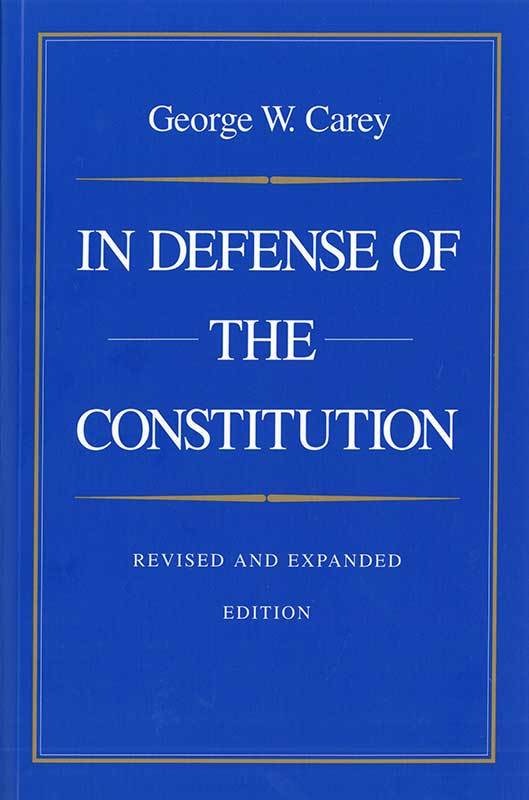
In Defense of the Constitution
- George W. Carey (author)
In Defense of the Constitution refutes modern critics of the Constitution who assail it as “reactionary” or “undemocratic.” The author argues that modern disciples of Progressivism are determined to centralize political control in Washington, D.C., to achieve their goal of an egalitarian national society.
Show more
Furthermore, he contends, Progressive interpreters of the Constitution subtly distort fundamental principles of the Constitution for the precise purpose of achieving their egalitarian goals. It is in their distrust of self-government and representative institutions that Progressivists advocate, albeit indirectly, an elitist regime based on the power of the Supreme Court?or judicial supremacy. Key elements and issues in this transformation of the original republic into an egalitarian mass society are thoroughly examined.